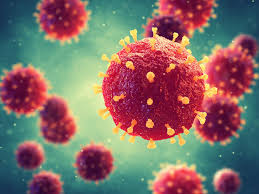The COVID-19 pandemic appears to be taking a terrifying turn in Abuja, Nigeria’s Federal Capital Territory, due to shortage of oxygen and bed spaces for critical cases.
It was gathered that eight months after the COVID-19 pandemic hit the nation’s capital city, Government had failed to inaugurate the only Infectious Disease Hospital at the University of Abuja Teaching Hospital, Gwagwalada, despite promises from the Minister of Health, Dr Osagie Ehanire.
The Senate President, Ahmad Lawan, had in March, 2020 lamented that the permanent site being built by the UATH had yet to be completed, as he also decried the slow pace of work.
Meanwhile, following the completion of the project, it has remained shut for lack of equipment.
Consequently, doctors have continued to improvise, using the Accident and Emergency Ward at the University of Abuja Teaching Hospital, Gwagwalada, to treat severe COVID-19 cases.
Some Doctors who would rather not be named lamented that the improvised isolation centre at the University of Abuja Teaching Hospital, Gwagwalada, was currently having a shortage of bed space and oxygen.
One of the doctors said there were enough beds in other isolation centres treating mild cases but this was completely different for critical cases.
A doctor, who wished to remain anonymous, said, “We have excess bed spaces for mild, asymptomatic to moderate cases. We have enough room at the Dome for now and the Idu isolation centre can be easily put together since it is not a hospital but was purpose-built for COVID-19 and the beds are still there. All we need to do is just to clean up and decontaminate the place.
“But the problem is that we don’t have enough spaces for severe cases. It is only the National Hospital and Gwagwalada that are used for treatment of severe cases and Gwagwalada is filled to capacity every day.
“Even if they discharge five, another six will come in. It is full to the brim and overcrowded. It is supposed to be a 26-bed space but now they operate between 30 and 34 daily and almost half of them are on permanent oxygen. This is an impending disaster.”
The doctor noted that a member of the Presidential Advisory Committee Against Corruption, Prof Femi Odekunle, died about ten days ago due to shortage of oxygen.
He added that many other patients risk dying if an urgent solution was not found.


